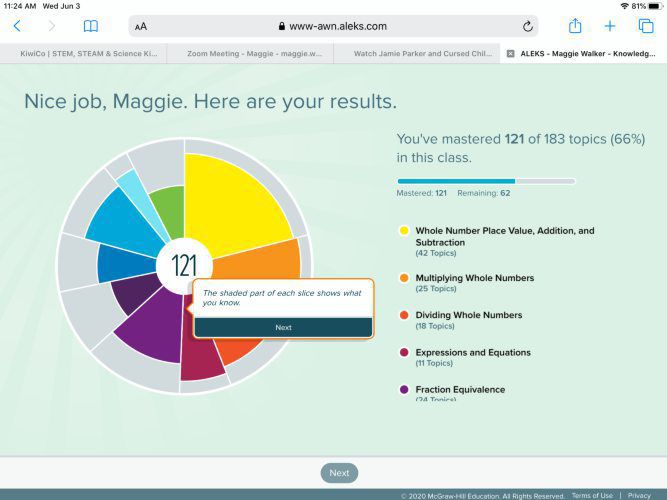The term “artificial intelligence” has inspired unease among people for years, fed either by Hollywood’s dystopian films about machines turning on man and taking over the world, or simply people who fear being out of a job because a computer can do it better.
Use of artificial intelligence, or AI, has gained more footing among businesses in the past several years. Research firm Gartner Inc. said a 2019 survey showed 37 percent of respondent enterprises used AI in their operations, up from 10 percent of respondents four years prior. Gartner also predicts that three-quarters of all enterprises will use AI by 2024.
That increase in demand has led Northeast Iowa Community College to create a curriculum to teach students how to cultivate relevant data, analyze it and put it into use through machine learning.
“There is a real demand for it, honestly,” said Jeremy Durelle, a science instructor at NICC. “(Companies) want people to be more data literate.”
Use of AI and data analysis can be a complex endeavor, but there are easily accessible methods for smaller businesses. For example, web traffic analytics services allow companies to zero in on their target audiences and spend marketing dollars wisely.
“It’s incredibly important for us to know who are audience is and what they’re looking at,” said Keith Rahe, president and CEO of Travel Dubuque.
WHAT IS AI?
The generally accepted modern definition of artificial intelligence is using computer software to complete tasks normally requiring human intelligence.
Those tasks have included visual identifications, speech recognition and decision making. The key aspect of artificial intelligence is, like humans, it can interpret and adapt to information.
The average person is exposed to AI in several ways, including targeted advertising on websites, how content is organized on social media feeds and recommended movies and TV shows on streaming services.
Smart home technology is becoming increasingly popular, not only with voice-activated assistants but also with virtual security measures and smart thermostats. Zion Market Research estimates the global smart home technology market will be worth more than $53 billion in the next two years.
Businesses have been increasingly using AI in a variety of ways, including use of machine learning to process large amounts of data efficiently, improving cybersecurity protections and automation of certain tasks previously done by workers.
NICC RESPONSE
Durelle said businesses are seeking workers who can understand and effectively implement these new trends in AI and data analytics.
He has repeatedly heard that demand during conferences of business, and academic officials hosted by Iowa Gov. Kim Reynolds.
NICC recently piloted a new noncredit class that delves into the basics of cultivating good data for processing. Durelle said a four-credit program is being developed to expand upon those concepts.
He anticipates the course will include how to sort through data, use of coding to automate data processing and applications of machine learning.
“It’s still evolving,” he said of the plans. “We want to make sure the stuff that we present in the courses is more or less appropriate to the needs (of local businesses).”
Other local schools also are looking to fill those needs. Clarke University offers data analysis training in its CareerPLUS professional development program.
For undergraduates, Clarke, University of Dubuque and University of Wisconsin-Platteville offer data analysis courses as part of broader computer science-related majors.
University of Dubuque will offer a data analytics minor starting this school year.
Loras College has majors specifically in business analytics and data science, as well as a master’s program in applied analytics. The latter is the evolution of a MBA in business analytics Loras started eight years ago.
Dale Lehman, professor of business administration at Loras, said local employers such as John Deere Dubuque Works and Rockwell Collins have sent employees through that master’s program to strengthen their AI-related endeavors.
Lehman and Durelle agreed the use of data analytics for forecasting and decision-making is a significant tool.
“The predictions that are being made are going to be married to a confidence interval (in the data), and so whoever the decision maker is gets to weigh those options and have a more realistic picture about what to expect,” Durelle said.
He also does not believe AI is a threat to the human workforce. Rather, Durelle said, automation can take over tedious analysis tasks and free workers’ talents for better use.
“People can refocus their energies on other things rather than spending a week analyzing a data set,” he said.
Lehman said forecasts of AI’s potential can sometimes be too “hyped,” and smaller businesses might be unsure how they would benefit from that technology. One good first step for any company is increased data literacy.
“What always surprises me is how little businesses make use of the data they’ve already got,” he said. “Nevermind doing a fancy machine learning approach, just even understanding what their historical data will tell them is important.”
SMARTER DECISIONS
Rahe said Travel Dubuque uses significantly more data than ever to study engagement trends and determine marketing strategies.
“Before, 10 years ago, it was a blanket approach (to marketing),” said Rahe, who has decades of experience in the tourism industry. “Now (data analytics) allows us to be a lot smarter in our marketing efforts … really getting the best bang for our buck.”
Travel Dubuque uses social media and services like Google Analytics and Google Ads to mine data on who is searching the internet related to Dubuque and local events. They know details such as demographics, which content they’re looking at, and for how long.
Rahe said state officials also provide annual reports on tourism-related data in Iowa’s 10 major metropolitan areas, which also helps drive strategic planning for Travel Dubuque.
Some trends Rahe has seen based on internet data are that more younger people, ages 25 to 35, are looking for tourism options in Dubuque. Historically, the demographic had been treated as people ages 45 and older. As a result, they are putting more content, events and marketing into the interests of that younger demographic.
Effective use of social media is a key part of reaching those audiences, too.
“Social media has made a dramatic difference, and that’s why the analytics component to what we do is so huge,” Rahe said.
AI IN USE
McGraw-Hill is among many prominent companies offering products powered by AI.
ALEKS is an online tutoring and assessment program that traces its roots back to the University of California Irvine in 1994. That initiative became the independent ALEKS company, which McGraw-Hill acquired in 2013.
ALEKS helps students learn various subjects in math, chemistry, physics and business-related math, and can be used by students in fourth grade through post-secondary education. The program works best with quantitative subjects like these, rather than for broader topics like English and history.
Lori Anderson, vice president of technical product management for McGraw-Hill, said ALEKS will assess students’ knowledge level of a subject through questioning that adapts in real-time to students’ answers. Once the student’s level is determined, ALEKS tailors lessons to that student’s level.
The questions are designed to make students give an answer truly based on what they know, so ALEKS can give a true assessment.
“It’s not a multiple-choice set-up,” she said. “It uses unique answer input. You can’t game the system.”
Anderson said the system serves as an aide to teachers, as it is difficult for one teacher to give individualized attention to every student in a classroom. Teachers have access to student data collected by ALEKS that shows which students need more help, as well as when there have been unusual changes, for better or worse, to a student’s learning patterns.
Anderson said teachers can also alter ALEKS to set specific benchmarks around their syllabus and lesson plans, if they would prefer more control over that.
“(ALEKS) is not meant to fully replace teachers — it’s meant to complement them.”













